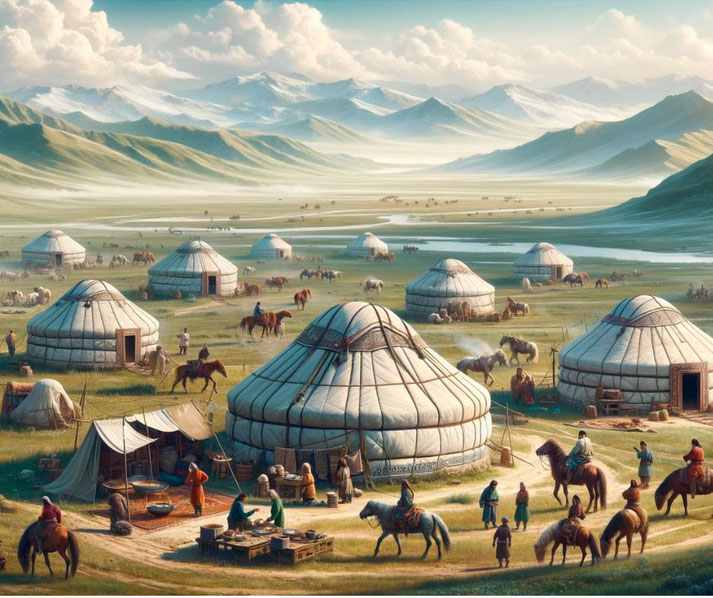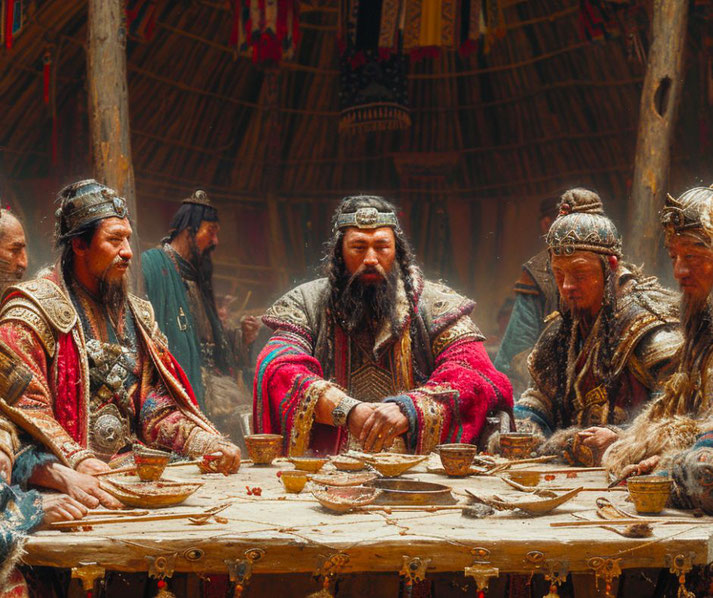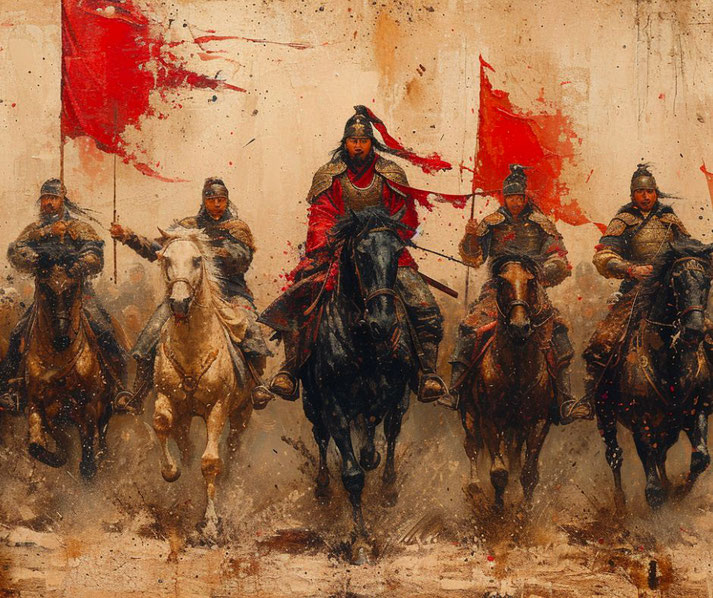Khutulun: The incredible life of a terrifying Mongol warrior princess

Most histories about the Mongol Empire focus on male warriors, but the story of Khutulun, the warrior princess, is one that more people need to know.
Imagine a woman so formidable that she turned her suitors into wrestlers, challenging them to defeat her in combat as a condition of marriage.
Khutulun, cousin to the great Kublai Khan, was no ordinary princess waiting in a tower. She was a force on the battlefield, a master strategist, and a symbol of strength in a world ruled by men.
Her life raises a compelling question: How did a 13th-century woman defy the conventions of her time to become a celebrated warrior and a revered figure in Mongol history?
The dangerous world Khutulun was born into
Khutulun was born into the powerful Mongol empire in the late 13th century, during a time when the empire was underoing vast expansion.
As a member of the Borjigin dynasty, she was the daughter of Kaidu, a prominent Mongol leader who fiercely opposed his cousin Kublai Khan’s rule over the Mongol Empire.
The exact date of her birth remains unclear, but it is generally believed to be around 1260.
Khutulun's early life was also shaped by the broader context of the Mongol Empire’s political landscape.
During this time, the empire was experiencing internal divisions, with Kaidu leading a faction that challenged Kublai Khan’s Yuan Dynasty in China.
This rivalry between her father and Kublai Khan played a significant role in Khutulun’s life, as she navigated her loyalty to her father and her relation to the Khan.

The difficulty of being a princess in the Mongol Empire
In a society where gender roles were clearly defined, with women primarily managing the household and men engaging in warfare and hunting, Khutulun carved out a unique position for herself.
Her lineage as a member of the Borjigin dynasty granted her a certain status, but it was her personal attributes and achievements that truly elevated her position.
Unlike many women of her time, she was trained in the arts of war, learning to ride, shoot, and strategize.
She was trained in the arts of war alongside her male counterparts. This training included mastering horseback riding, archery, and tactical warfare, skills that were essential for any Mongol warrior.
Khutulun accompanied her father on numerous military campaigns, actively participating in the battles and strategy discussions.
This involvement in military affairs was highly unusual for a woman of her era and underscored her father Kaidu's trust and reliance on her abilities.
Her presence alongside her father in these critical situations also indicated her status as a key advisor and confidante.

How Khutulun became a military mastermind
One of the most significant demonstrations of Khutulun's military capabilities was during the series of conflicts between her father, Kaidu, and her cousin, Kublai Khan, who was the ruler of the Yuan Dynasty.
These conflicts, part of the broader Mongol civil wars, took place in the latter half of the 13th century.
Khutulun played an active role in these battles, often fighting alongside her father.
Her participation was not symbolic; she was actively involved in combat and strategizing, demonstrating both bravery and tactical acumen.
One notable event that underscores her battlefield prowess occurred around the late 1280s.
During a critical battle against Kublai Khan's forces, Khutulun's contributions were decisive.
According to some historical accounts, she rescued her father from capture by the enemy forces.
Her actions in this battle were so significant that they earned her widespread acclaim and further solidified her reputation as a formidable warrior.

How she wrestled men to find a suitable husband
Khutulun, known for her physical strength and wrestling prowess, declared that any man who wished to marry her must first defeat her in a wrestling match.
If the suitor lost, he was to give her a hundred horses. This unique condition set by Khutulun was not only a testament to her confidence and skill as a wrestler but also a strategic move to maintain her independence and control over her marital choice.
The challenge attracted numerous suitors, drawn by both Khutulun's beauty and her father's considerable wealth and power.
However, none could defeat her in the wrestling ring. Khutulun's reputation grew with each victory, and she amassed a substantial number of horses, reportedly accumulating over a thousand from her defeated suitors.
This unconventional method of selecting a spouse was extraordinary, especially in a society where marriages were often arranged for political alliances or familial ties.
Khutulun's eventual marriage, however, unfolded in a manner that has been the subject of various interpretations and legends.
According to some accounts, she eventually married one of her father's followers, a man who either won her hand through strategy, as he deliberately lost a match to her, or through mutual respect and affection, rather than through the wrestling challenge.
Did Khutulun really exist?
Much of what is known about Khutulun comes from the writings of Marco Polo and the Persian historian Rashid al-Din, both of whom wrote decades after her time.
Their accounts, though valuable, raise questions about embellishment and cultural interpretation, particularly given that neither writer personally encountered Khutulun.
This has led to debates among historians about the extent to which her story has been romanticized or altered.
While the stories of the wrestling challenges are widely cited and have become integral to her legend, some historians question their authenticity or suggest they may have been exaggerated over time.
The idea of a woman demanding potential suitors to wrestle her for her hand in marriage is an unusual practice, even in the context of Mongol society.
Some scholars argue that this narrative could be a symbolic representation of her strength and independence rather than a literal historical event.
Similarly, Khutulun's role in the political and military conflicts of her time, particularly her involvement in the struggles between her father Kaidu and her cousin Kublai Khan, is a subject of debate.
While it is clear she was a significant figure in her father's campaigns, the extent of her influence and the details of her participation are less certain.
This uncertainty is partly due to the limited and sometimes conflicting sources available.
Finally, there is the broader debate about Khutulun's representation in history and popular culture.
Some argue that her story has been co-opted or oversimplified to fit modern narratives about female empowerment and resistance to traditional gender roles.
While these interpretations celebrate her as a symbol of strength and independence, they may also overlook the complexities of her historical and cultural context.
What do you need help with?
Download ready-to-use digital learning resources
Copyright © History Skills 2014-2024.
Contact via email
With the exception of links to external sites, some historical sources and extracts from specific publications, all content on this website is copyrighted by History Skills. This content may not be copied, republished or redistributed without written permission from the website creator. Please use the Contact page to obtain relevant permission.





